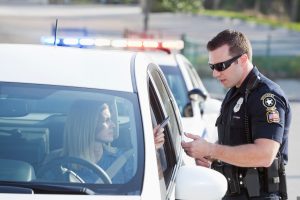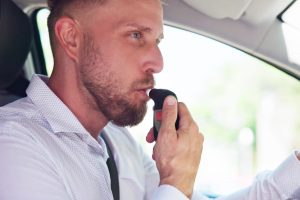Traffic stops are among the most common interactions between citizens and law enforcement in Florida. While most traffic stops end with a warning or citation, some escalate to vehicle searches that can lead to serious criminal charges. Our Fort Lauderdale criminal defense lawyers believe that understanding when police can legally search your vehicle is essential knowledge for every driver in Broward County.
The Legal Framework for Vehicle Searches
The Fourth Amendment Protection
The Fourth Amendment to the United States Constitution provides the fundamental protection against unreasonable searches and seizures:
“The right of the people to be secure in their persons, houses, papers, and effects, against unreasonable searches and seizures, shall not be violated, and no Warrants shall issue, but upon probable cause, supported by Oath or affirmation, and particularly describing the place to be searched, and the persons or things to be seized.”
While this protection extends to vehicles, the U.S. Supreme Court has established that automobiles are subject to a reduced expectation of privacy compared to homes or persons, creating what’s known as the “automobile exception” to the warrant requirement.
Florida Constitutional Protections
Article I, Section 12 of the Florida Constitution mirrors the Fourth Amendment’s protections. However, it’s important to note that in 1982, Florida voters amended this section to conform with U.S. Supreme Court interpretations of the Fourth Amendment, meaning Florida courts generally follow federal search and seizure precedents.
When Police CAN Search Your Vehicle in Fort Lauderdale
1. With a Valid Search Warrant
Police can search your vehicle if they have obtained a valid search warrant from a judge. The warrant must specifically identify your vehicle and describe what the officers are looking for. However, given the mobile nature of vehicles, warrant-based searches are relatively uncommon in traffic stop situations.
2. With Your Consent
One of the most common ways police search vehicles is through voluntary consent. If an officer asks, “Do you mind if I take a look inside your vehicle?” and you agree, you’ve waived your Fourth Amendment protections.
In Florida, consent must be freely and voluntarily given to be valid. In the 1968 case of Bumper v. North Carolina, the Supreme Court established that consent obtained through deception or coercion is invalid. However, per the 1973 U.S. Supreme Court ruling in Schneckloth v. Bustamonte, police do not need to inform you of your right to refuse consent.
3. Probable Cause
Police may search your vehicle without a warrant or consent if they have probable cause to believe evidence of a crime is present. This exception has been consistently upheld by both federal and state courts.
Common scenarios that might establish probable cause include:
- Visible contraband in “plain view” through your car windows
- The smell of drugs (particularly marijuana)
- Alert from a properly trained K-9 unit to the presence of narcotics
- Information from a reliable informant
In the 1999 ruling of Maryland v. Dyson, the U.S. Supreme Court clarified that the automobile exception does not require exigent circumstances beyond the vehicle’s inherent mobility.
4. Incident to Lawful Arrest
If you are lawfully arrested, police may conduct a limited search of your vehicle’s passenger compartment if they reasonably believe it contains evidence related to the offense of arrest.
It’s worth noting that this exception was narrowed in 2009 by the U.S. Supreme Court in Arizona v. Gant. The court held that police can’t search a vehicle incident to arrest after the arrestee has been secured and can’t access the vehicle’s interior – unless it’s reasonable to believe evidence relevant to the crime of arrest might be found in the vehicle.
5. Inventory Searches
When police legally impound a vehicle, they may conduct an “inventory search” without a warrant or probable cause. This administrative procedure is meant to document the vehicle’s contents, protect against claims of theft, and identify potential dangers.
For an inventory search to be valid, it must follow standardized department procedures and cannot be a pretext for an investigative search. As noted in the 1981 Florida Supreme Court case of Miller v. State, inventory searches must be conducted in good faith for the purpose of protecting property, or else it may violate the 4th Amendment rights of the accused.
 Fort Lauderdale Criminal Attorney Blog
Fort Lauderdale Criminal Attorney Blog











